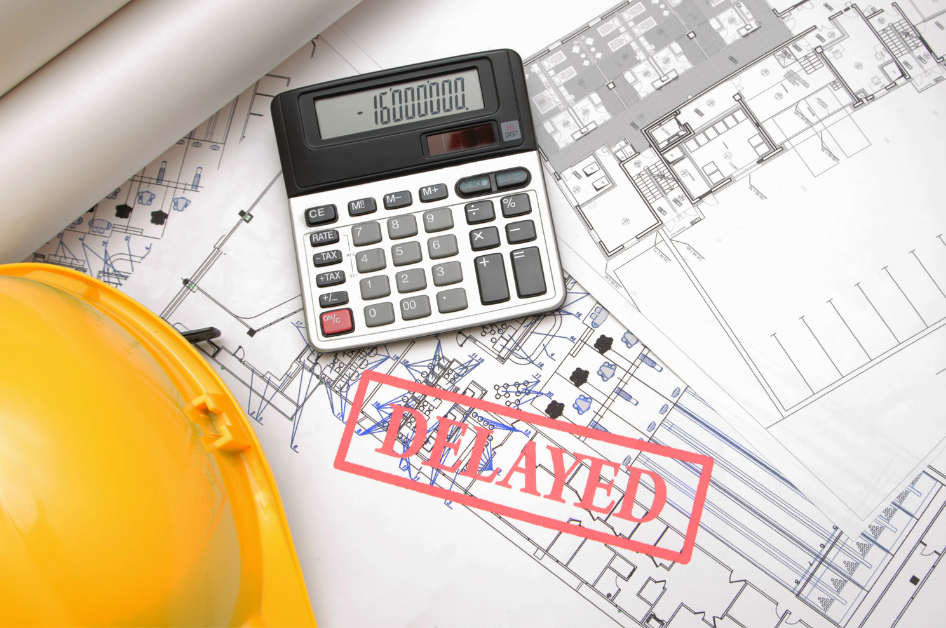No property developer goes into a development project with the expectation that it will go wrong. We spend lots of hours poring over our feasibilities and risk assessments with a view to only taking on a project that is viable.
And yet the last few years have shown us that no matter how much risk mitigation you put in place, you can still get hit with a curve ball.
Still, given pandemics are not common, you can do a lot to make sure your project doesn't get derailed with a massive time blowout.
Choose The Right Builder
 Choosing the right builder can significantly reduce delays. So work with a builder who has a proven track record of timely and high-quality project delivery.
Choosing the right builder can significantly reduce delays. So work with a builder who has a proven track record of timely and high-quality project delivery.
Make sure they plan to work with suppliers who have a history of delivering materials on schedule.
Becoming a Property Developer Network member and attending meetups is an absolute goldmine. Turn up, talk to other members and get recommendations and warnings about builders they've used. That doesn't mean skipping doing your own due diligence, but it's a good place to start.
Start As You Mean To Continue
Right from the beginning, make it clear that keeping the build on schedule is important to you. As part of the tender process, request a work breakdown structure and a Gantt chart for all the build tasks.
Every time you have a meeting with the builder (which should be regularly!) pull these out and compare them to the current progress on the build. Always ask the builder the reasons for any discrepancy with the expected timeline.
Reality is, there's a lot of moving pieces in a build, and sometimes things just don't happen on time. That's okay, be flexible, but work with the builder to find other ways to move things along until the slow bit catches up.
Good Information
Comprehensive planning before starting the build is essential for a smooth construction process. There's an old saying "Garbage in, garbage out". The better the information you provide to the builder, the less need for delays while something is clarified.
That means you need to conduct detailed analysis of site conditions, including soil testing and utility access. Plus, ensure all design plans, architectural drawings, and blueprints are thoroughly reviewed and finalized to prevent changes mid-construction.
The flow of information needs to go in both directions - it's also important for your builder to let you know what he needs well in advance, so you have plenty of time to do what's required.
Communication
Let's be clear about one thing - shit happens. Of course there are some builds where things go really smoothly, no problems - and pigs fly, too.
That's why it's crucial to build relationships based on trust and transparency, ensuring all parties are committed to the project's success.
Every build has challenges. The only difference is that some are small and easily dealt with, while others are massive. The communication between yourself and your builder needs to remain as positive as possible, with a focus on finding solutions rather than pointing fingers in blame.
 Building a good relationship isn't something to do when things go wrong - you should be working at establishing it when things are going right.
Building a good relationship isn't something to do when things go wrong - you should be working at establishing it when things are going right.
When you go to site for meetings with the builder, take coffee and doughnuts. If there's a Friday afternoon get together for tradies working on site, arrive with beer (no glass though!).
The more little pieces you put in place early on to build goodwill and rapport will pay you back a hundred times. When things get tough you will be able to work positively with the builder to sort it out and move forward.
Be Observant
Once the builder takes control of the site, you generally need his permission to visit the site.
Now, if you've done the hard yards to have a good relationship with your builder, chances are they'll be okay with it. This gives you a great opportunity to go on site when the builder's not there and talk to the tradies. You can learn a lot doing this!
Let me be clear - you are NOT going on site to interrupt the people working and slow them down. If you communicate with a tradie make it brief and positive.
Even if you don't talk to anyone, or can't go on site, there's nothing stopping you from driving past. Just doing this helps you to keep an eye on what activity is taking place on site.
It's also a really good idea to have a camera onsite. A lot of builders do these as standard nowadays to prevent theft, so discuss having access to the footage.
Quality Control
Poor quality work often leads to rework and delays. You will be given the opportunity to inspect the work before the project is handed back to you, but that's very late in the process.
It's good to establish quality benchmarks early and then conduct regular inspections during your meetings with the builder to ensure standards are met. Addressing any defects promptly helps to prevent escalation.
This also applies to delays - dealing with small delays early helps to prevent them growing into bigger delays.
Construction delays are an inherent risk in property development, but with proper planning, communication, and flexibility, their impact can be minimized. By understanding the root causes, acting promptly, and fostering strong relationships, property developers can navigate delays effectively and ensure project success.
And yet the last few years have shown us that no matter how much risk mitigation you put in place, you can still get hit with a curve ball.
Still, given pandemics are not common, you can do a lot to make sure your project doesn't get derailed with a massive time blowout.
Choose The Right Builder
Make sure they plan to work with suppliers who have a history of delivering materials on schedule.
Becoming a Property Developer Network member and attending meetups is an absolute goldmine. Turn up, talk to other members and get recommendations and warnings about builders they've used. That doesn't mean skipping doing your own due diligence, but it's a good place to start.
Start As You Mean To Continue
Right from the beginning, make it clear that keeping the build on schedule is important to you. As part of the tender process, request a work breakdown structure and a Gantt chart for all the build tasks.
Every time you have a meeting with the builder (which should be regularly!) pull these out and compare them to the current progress on the build. Always ask the builder the reasons for any discrepancy with the expected timeline.
Reality is, there's a lot of moving pieces in a build, and sometimes things just don't happen on time. That's okay, be flexible, but work with the builder to find other ways to move things along until the slow bit catches up.
Good Information
Comprehensive planning before starting the build is essential for a smooth construction process. There's an old saying "Garbage in, garbage out". The better the information you provide to the builder, the less need for delays while something is clarified.
That means you need to conduct detailed analysis of site conditions, including soil testing and utility access. Plus, ensure all design plans, architectural drawings, and blueprints are thoroughly reviewed and finalized to prevent changes mid-construction.
The flow of information needs to go in both directions - it's also important for your builder to let you know what he needs well in advance, so you have plenty of time to do what's required.
Communication
Let's be clear about one thing - shit happens. Of course there are some builds where things go really smoothly, no problems - and pigs fly, too.
That's why it's crucial to build relationships based on trust and transparency, ensuring all parties are committed to the project's success.
Every build has challenges. The only difference is that some are small and easily dealt with, while others are massive. The communication between yourself and your builder needs to remain as positive as possible, with a focus on finding solutions rather than pointing fingers in blame.
When you go to site for meetings with the builder, take coffee and doughnuts. If there's a Friday afternoon get together for tradies working on site, arrive with beer (no glass though!).
The more little pieces you put in place early on to build goodwill and rapport will pay you back a hundred times. When things get tough you will be able to work positively with the builder to sort it out and move forward.
Be Observant
Once the builder takes control of the site, you generally need his permission to visit the site.
Now, if you've done the hard yards to have a good relationship with your builder, chances are they'll be okay with it. This gives you a great opportunity to go on site when the builder's not there and talk to the tradies. You can learn a lot doing this!
Let me be clear - you are NOT going on site to interrupt the people working and slow them down. If you communicate with a tradie make it brief and positive.
Even if you don't talk to anyone, or can't go on site, there's nothing stopping you from driving past. Just doing this helps you to keep an eye on what activity is taking place on site.
It's also a really good idea to have a camera onsite. A lot of builders do these as standard nowadays to prevent theft, so discuss having access to the footage.
Quality Control
Poor quality work often leads to rework and delays. You will be given the opportunity to inspect the work before the project is handed back to you, but that's very late in the process.
It's good to establish quality benchmarks early and then conduct regular inspections during your meetings with the builder to ensure standards are met. Addressing any defects promptly helps to prevent escalation.
This also applies to delays - dealing with small delays early helps to prevent them growing into bigger delays.
Construction delays are an inherent risk in property development, but with proper planning, communication, and flexibility, their impact can be minimized. By understanding the root causes, acting promptly, and fostering strong relationships, property developers can navigate delays effectively and ensure project success.
